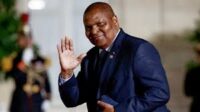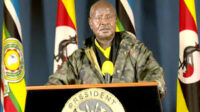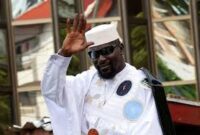Equatorial Guinea is pressing forward with a case at the International Court of Justice (ICJ) to stop the French government from selling a luxury mansion seized from its vice president, Teodoro Nguema Obiang Mangue, in 2021. The property, located in one of Paris’s most prestigious neighborhoods, was confiscated after a French court found Obiang guilty under anti-corruption laws targeting wealth illicitly obtained by foreign officials. The ruling was part of France’s broader push to combat so-called “ill-gotten gains” by global elites.
Teodoro Obiang, the son of President Teodoro Obiang Nguema Mbasogo, has long faced international scrutiny over his lavish lifestyle, which includes multimillion-dollar properties, exotic cars, and luxury assets across Europe and the United States. Human rights groups and anti-corruption watchdogs have often cited his case as emblematic of how resource wealth in oil-rich countries like Equatorial Guinea has been misused by political elites.
Equatorial Guinea, however, is challenging the French court’s ruling at the ICJ, claiming the property in question is part of its diplomatic mission and therefore protected under international law. Its ambassador to France, Carmelo Nvono-Ncá, has condemned France’s actions as “paternalistic” and “neo-colonial,” stating that the move disregards Equatorial Guinea’s sovereignty and violates diplomatic norms.
In response, France’s Ministry of Foreign Affairs dismissed the case as legally unfounded and politically motivated. “France regrets that, at a time when the Court’s docket is filled with numerous major cases, Equatorial Guinea once again seeks to occupy its time solely to revisit the issue of this property,” a ministry spokesperson said.
This legal battle underscores growing tensions between France and some African governments, who view Paris’s legal actions against their officials as intrusive and politically biased. Meanwhile, international observers see the case as a key test of accountability for global leaders accused of enriching themselves at the expense of their citizens.














Leave a comment